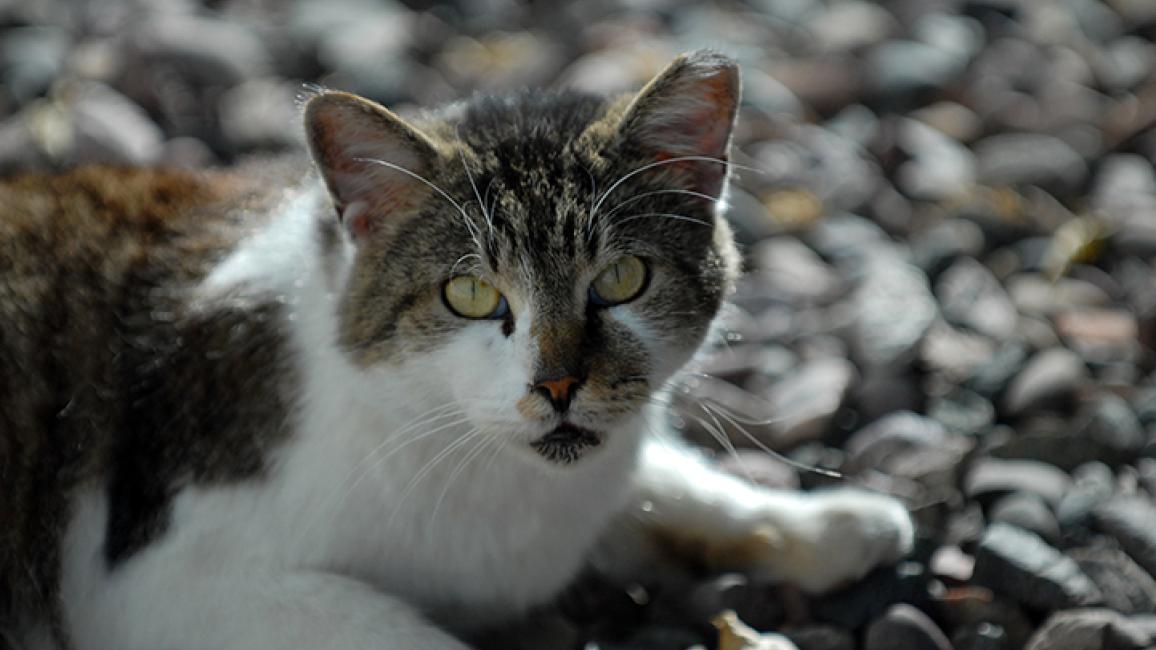Atlanta TNR program for free-roaming cats

Best Friends helped launch the Feral Freedom program in DeKalb County, Georgia, in 2011. The program partners local LifeLine Animal Project with DeKalb County Animal Services and Enforcement. The basis of this trap/neuter/return (TNR) program is that community (aka feral) cats go to LifeLine to be spayed or neutered and then are released back in their original neighborhoods. Essentially, it keeps community cats from entering the shelter system. This lifesaving force works on two levels. The first is that the community cats are not being killed in the system, and the second is that by not entering the system, they are creating space for the adoptable cats. Overcrowding could lead to health risks and euthanasia as a form of population control.
Success of Feral Freedom program in Atlanta, Georgia
How is it working? The results speak for themselves. Xan Rawls, director of DeKalb County Animal Services and Enforcement, shares, "We are very happy to be partners with LifeLine Animal Project and Best Friends. The program is going very well. This past January, we had zero euthanasia for cats in our shelter. I've been in animal welfare for 30 years, and I've never seen anything like it. Of course, we want cats to live indoors, but our culture doesn't always support that. Making sure free-roaming cats are not reproducing is critical."
Partnering with the public to help feral cats
Best Friends' Atlanta programs community cat coordinator Janet Samuel works with animal control by fielding nuisance calls. She also returns cats, post-surgery and recovery, to their community. In 2012, the Feral Freedom program spayed and neutered 497 cats directly from animal control, and 42 were trap/neutered/returned by Janet without the involvement of animal control at all. When Janet is in the field, she's freeing up more of animal control's finite resources to deal with other issues - and she's just ramping up.
"In February, my role went from part-time to full-time, and I'll be able to focus more on the trapping end of things," says Janet. "By helping more people in the field, we're able to address the public's needs more readily. I'm able to educate people on TNR. Most people don't want to hurt the cats; they just don't know what to do about them. I had one situation recently with a gentleman who brought a stray cat to LifeLine, and he didn't know what to do about him. He was going to bring the cat to animal control. I explained our program and asked if he was interested in becoming a caregiver - and he was. That's the best outcome!"
Not everyone is as thrilled about helping community cats. Janet also shares a cat deterrent DVD with people who don't want cats on their property. By educating people so they understand that these cats can't go to the shelter to be adopted out, they can be part of the solution, even if it means just co-existing peacefully with their furry free-roaming neighbors.
Legacy of animal lifesaving in the Atlanta area
LifeLine Animal Project has been working in the Atlanta area for over a decade to help save as many lives as possible. Rebecca Guinn, founder, is thrilled with how the program is running. "We've gotten such great results, and DeKalb County Animal Services and Enforcement has been a wonderful partner," says Rebecca. "The program runs so smoothly, and we're pleased that the community is accepting it and no one's complaining. It's all been so positive. TNR is one of the most effective ways to reduce shelter deaths, and to see it working so effectively is fantastic."
Both Xan and Rebecca look forward to seeing even greater results in 2013.
Get involved to help animals
Support the work of LifeLine Animal Project.
If you are interested in learning more about TNR, check out the cat initiatives from Best Friends.
Photo by Best Friends staff